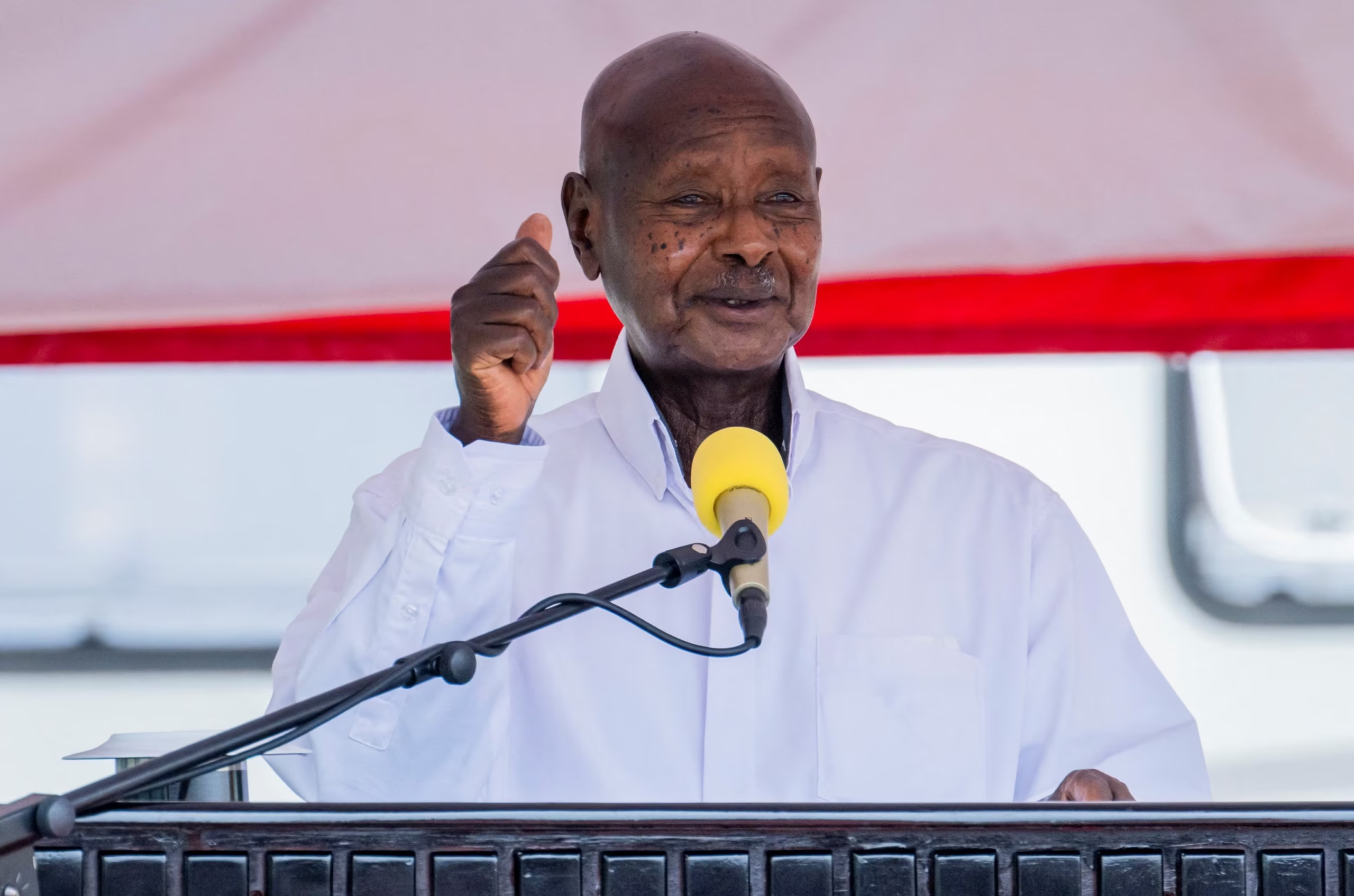
President Yoweri Museveni of Uganda, who has held power since 1986, will seek re-election in January 2026, according to a senior official from the ruling National Resistance Movement (NRM).
The 80-year-old leader is set to extend his nearly 40-year rule, making him one of Africa’s longest-serving presidents.
Confirmation of Museveni’s candidacy came on Monday through Tanga Odoi, chairman of the NRM’s electoral commission.
Speaking to reporters, Odoi stated, “The president… will take (the) expression of interest forms for two positions, one for party president and the other to run, if he has a chance, for the position of leader of the country.”
According to Odoi, Museveni is expected to collect the necessary documents on June 28 to formalize his participation in both the internal party elections and the national general elections.
This marks the first official signal from the NRM that Museveni intends to continue his political dominance, ending months of speculation surrounding his potential retirement.
The move positions him to maintain his grip on the East African nation into a fifth decade, should he secure victory once again.
Museveni first came to power in 1986 after a five-year armed rebellion that ousted Milton Obote’s government.
Since then, he has overseen major changes to Uganda’s political system, including the removal of presidential term and age limits from the constitution.
Uganda, the second most populous landlocked country in Africa, is situated in the Great Lakes region.
The country shares Lake Victoria with Kenya and Tanzania and boasts abundant natural resources, including fertile soils, copper, cobalt, and largely untapped oil and gas reserves.
Despite its economic potential, Uganda has faced long-standing development challenges.
In 2000, the country was part of the Heavily Indebted Poor Countries (HIPC) initiative, which led to $1.3 billion in debt relief, followed by an additional $145 million from the Paris Club.
As the 2026 election draws near, attention will turn to Museveni’s political strategy, his party’s internal dynamics, and the response of Uganda’s increasingly vocal opposition.



